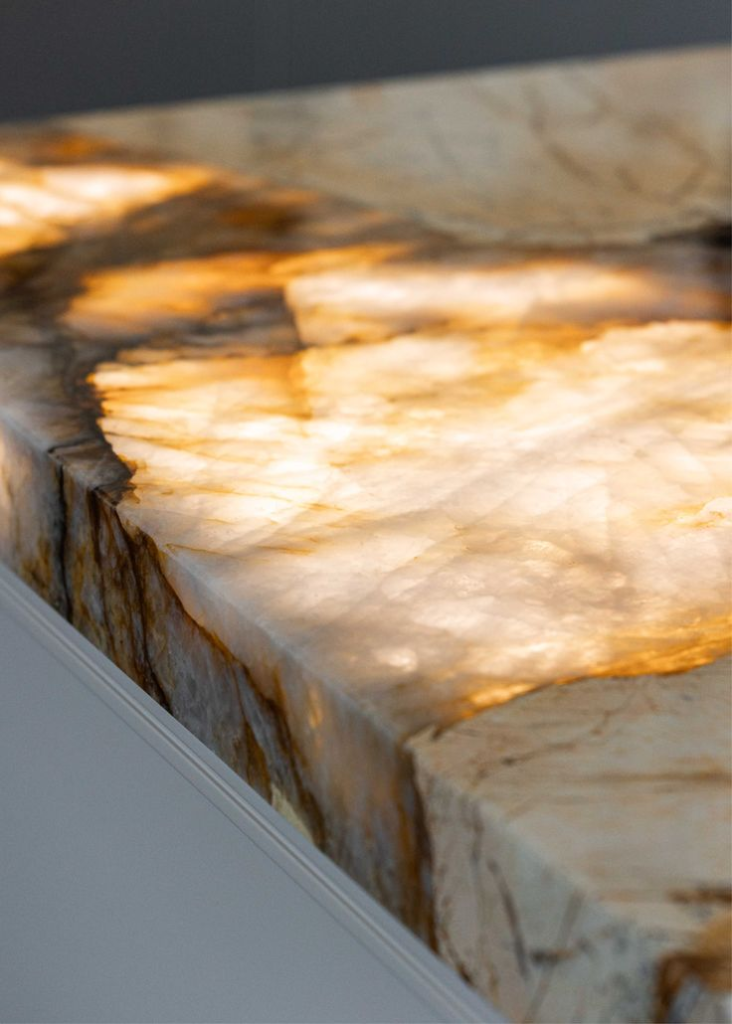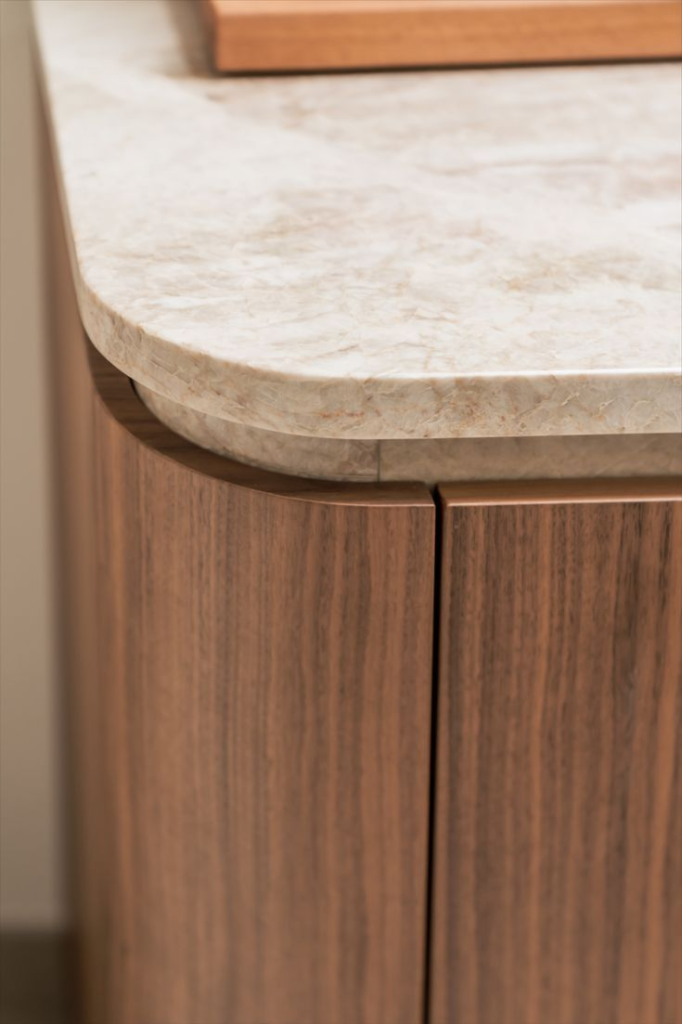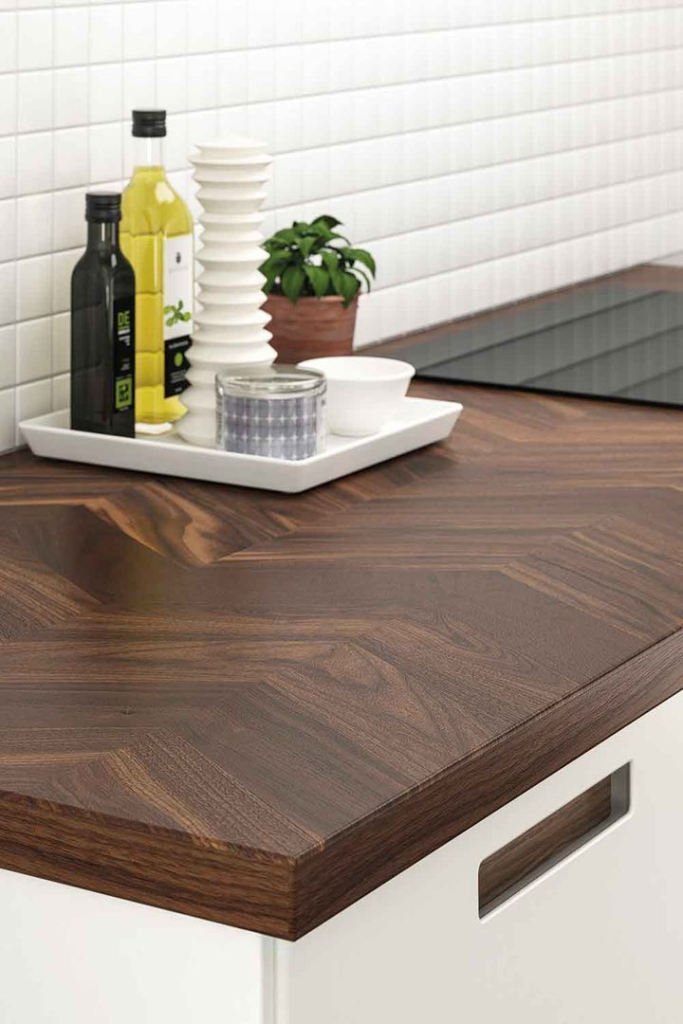As the crown jewel of your kitchen, the benchtop doubles as both your aesthetic and functional centre. Subject to daily use, your kitchen’s operation revolves around your benchtop, whether it’s for food prep, storage, or dining. You’ll want to maintain of your benchtop, and it all starts with choosing the right care routine for your material. In doing so, here is a detailed guide for 4 different benchtop materials:
Natural Stone
An expensive, natural, and highly unique choice, genuine stone is chosen mainly for its one-of-a-kind patterns and premium aesthetics. While it may shine for looks and individuality, it is not an easy material to maintain. Natural stone’s porous nature means that without a seal, it can trap moisture and bacteria. Liquids that seep in can also alter its appearance by causing stains.

The most important aspect of maintaining natural stone’s sheen and integrity is to have it sealed regularly, typically once every 2 years for granite, and more often for lighter-toned materials (as they are typically more porous). This can be prolonged by maintaining the seal itself during cleaning. Using gentle, pH-neutral cleaners will stop it from breaking down. You’ll know the seal needs replacing if a drop of water seeps in or if it darkens the stone. Due to its unique aesthetics, physical repairs may not preserve the original look. Deep scratches will be more noticeable on natural stone as well, so avoid harsh objects. It is, however, remarkably heat-resistant.
Engineered Stone
Durable, non-porous, and moderately priced, engineered stone is a popular choice for kitchen benchtops. Its maintenance requirements are lower than natural stone, being easier to clean and perfectly uniform thanks to its composition of crushed quartz and resins – the latter being why it’s non-porous.

The resin binders fill the gaps and the slab is vacuum-compacted. It will be sufficient to clean the surface with mild soap and water. Spills can be wiped away without concern and scratches won’t compromise its integrity. While it’s highly durable, high levels of physical impact or heat can still damage the resin, so be sure to keep your hot pans away.
Laminate
Featuring even more aesthetic variety than engineered stone, laminate benchtops shine brightest for design diversity, affordability, and DIY-friendliness. Thicker offerings can mimic stone’s appearance at a much lower cost, though it certainly won’t mimic its physical properties. It’s key to know laminate’s composition: an engineered wood substrate with a surface layer of bonded resin, paper, and print. This makes it vulnerable to heat and sharp objects, so avoid placing those directly on the counter.

While laminate typically performs well against water, keeping it wiped down and dry can prevent rare cases of moisture-ingress, which can cause the material to swell or warp if there is an opening. Abrasive cleaning tools or agents can also damage the surface.
Timber
Timber benchtops are typically made of solid wood strips that have been bonded together and sealed. The core material is usually a hardwood and they’re known for their natural, warm appearances.
Similar to natural stone, its aesthetics depend on what is naturally available, and therefore is more limited. Another shared trait is their inherent porous nature, meaning regular sealing is required for continued use. To maintain it, apply an oil finish every 12 months and avoid harsh cleaners or chemicals. Instead, use soft cloths and warm water to clean it. Due to its similarities with laminate benchtops, they are not particularly heat or scratch resistant.

Each benchtop material has its strengths and weaknesses. As shown by natural stone (particularly marble), pricier doesn’t always mean more durable. Universally, all benchtops can benefit from gentle cleaning with warm water. Depending on the material, regular sealing can be a welcome protectional supplement or an essential layer for integrity preservation.
Sources:

